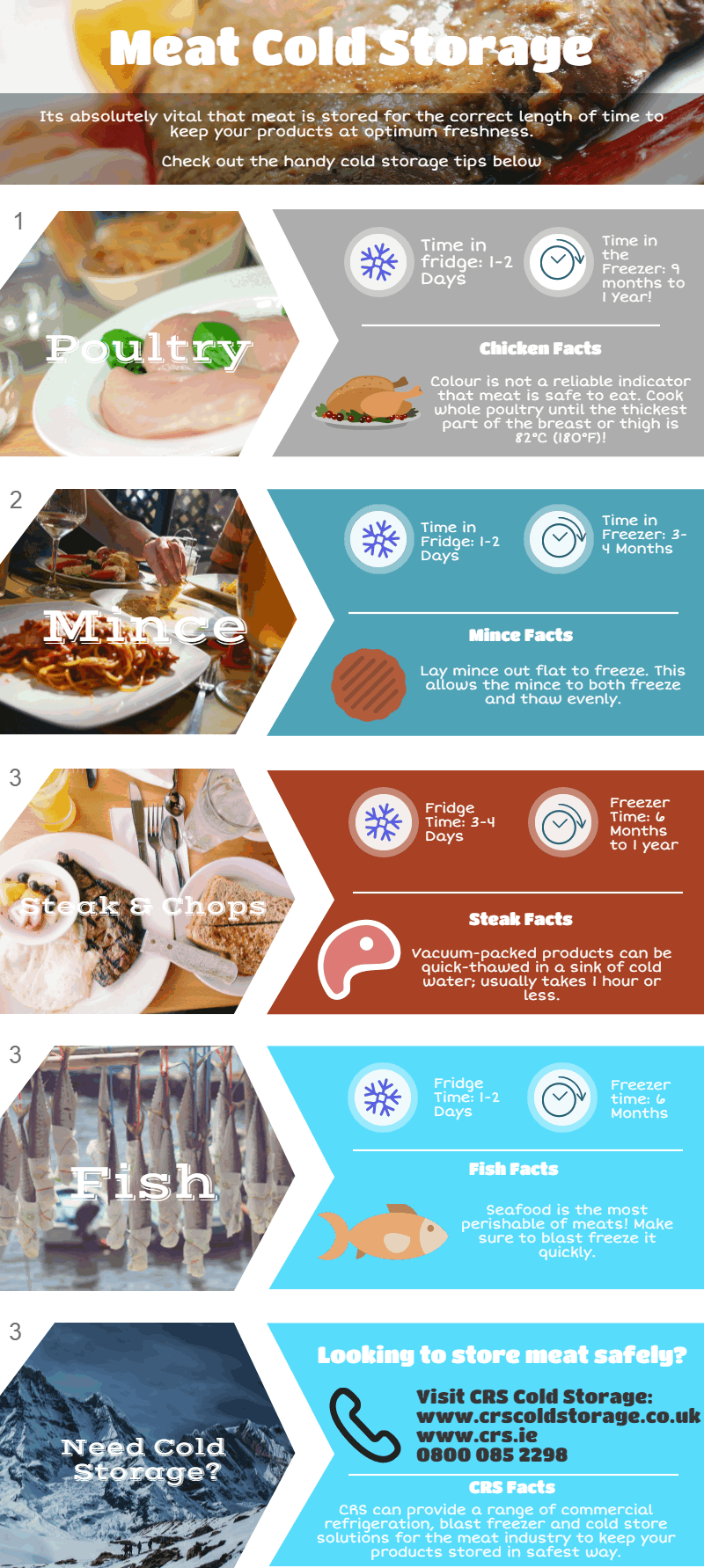Food hygiene should always be a paramount concern whenever food products are involved. Nowhere is this truer than meat. While dairy products and vegetables may have shorter shelf lives, meat tends to have more bacteria that can make it unfit for consumption. Food poisoning from poorly kept or poorly cooked meats is a very serious concern for any catering industry, so making sure your meat cold storage is safe should be among the first things you look at when considering culinary hygiene.
While each type of meat may have differing aspects with regards to how long it can be stored, how it should be stored, and how it should be handled, here are some general practises you should make habitual to ensure the best results for your meat’s cold storage.
Be Cautious When Handling Meat
Before and after you handle any meat products, wash and disinfect your hands. This will stop you from transferring bacteria to and from the product in question. Ideally you should avoid touching meat with your bare hands at all whenever possible, but sometimes it’s unavoidable. You should certainly never handle meat if your hands suffer from any sort of open wound or sore. Either pass the task onto someone else, or cover the wound with a clean plaster.
The Meat Cold Storage Rule of Thumb
As a rule of thumb, raw uncooked meat can stand in a refrigerator for around 3-4 days at 1.1°C. In a blast freezer, which cools the meat more quickly and more deeply, you may be able to extend this to as much as a few months, however you should avoid keeping meat in storage for too long as much as possible. When freezing meat, you should also keep them in sealable, airtight packaging as well to better protect them from damaging ice crystals and dirty surfaces. Your freezers should be kept as close to -18°C as much as possible, so as to preserve the texture and nutrients most effectively.
We suggest that meat be eaten as soon as possible rather than left in storage for protracted lengths of time, but nevertheless here’s an infographic showing how long items can be left in meat cold storage if they absolutely cannot be eaten now. The first value is for storage in the refrigerator, the second for freezer storage.

As with anything these times may vary depending on the quality of your cold storage, the item in question, and how frequently your meat cold storage containers are opened. Opening freezers too frequently will let in warm air, which may hamper the storage a little. As a rule of thumb you should try to avoid using food that’s been frozen for long periods unless you have to. If necessary, throw out old food after it’s been there for a while. Doing so will greatly reduce the chances of accidentally serving bad meat.
For more information about Meat cold storage and ideal products to store meat safely, go to - https://www.crscoldstorage.co.uk/refrigeration-industries/meat-cold-storage.html












